Related Research Articles
Hu Jinquan, better known as King Hu, was a Chinese film director and actor based in Hong Kong and Taiwan. He is best known for directing various wuxia films in the 1960s and 1970s, which brought Hong Kong and Taiwanese cinema to new technical and artistic heights. His films Come Drink with Me (1966), Dragon Inn (1967), and A Touch of Zen (1970–1971) inaugurated a new generation of wuxia films in the late 1960s. Apart from being a film director, Hu was also a screenwriter and set designer.
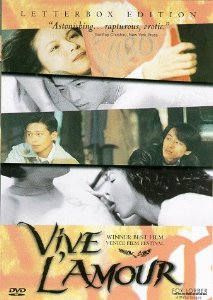
Vive l'amour is a 1994 Taiwanese New Wave film directed by Tsai Ming-liang. It is Tsai Ming-liang's second feature film.

Peter Ho-sun Chan is a film director and producer.

Red Cliff or Chibi is a 2008–2009 internationally co-produced epic war film, based on the Battle of Red Cliffs and the events at the end of the Han dynasty and immediately prior to the Three Kingdoms period in Imperial China. The film was directed by John Woo, and stars Tony Leung, Takeshi Kaneshiro, Zhang Fengyi, Chang Chen, Zhao Wei, Hu Jun, and Lin Chi-ling. It is Woo's first major film since 2003's Paycheck and his first Chinese-language feature since 1992's Hard Boiled, also starring Leung.
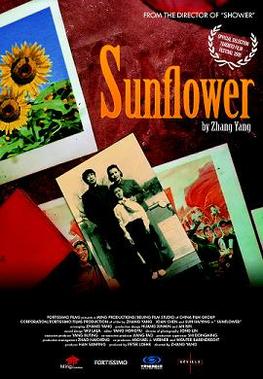
Sunflower is a 2005 Chinese film directed by Zhang Yang. Zhang's fourth film, Sunflower is a joint production of Ming Productions, the Beijing Film Studio and the Hong Kong subsidiary of the Netherlands-based Fortissimo Films. It was distributed by Fortissimo Films and New Yorker Films.

Lee Kang-sheng is a Taiwanese actor, film director and screenwriter. He has appeared in all of Tsai Ming-liang's feature films. Lee's directorial efforts include The Missing in 2003 and Help Me Eros in 2007.

I Don't Want to Sleep Alone is a 2006 Malaysian-Taiwanese romantic drama film written and directed by Tsai Ming-liang. Lee Kang-sheng stars in a dual role as a brain-dead patient and as an injured homeless man. The film also stars Norman Atun and Chen Shiang-chyi.
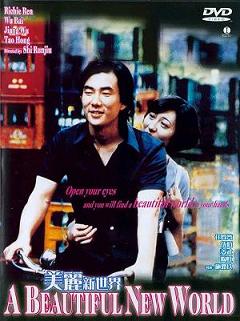
A Beautiful New World is a 1999 Chinese comedy film directed by Shi Runjiu. The film, Shi's first, was co-produced by Xi'an Film Studio and the independent Imar Film Company. It was Imar Film's second production, coming after 1997's Spicy Love Soup.
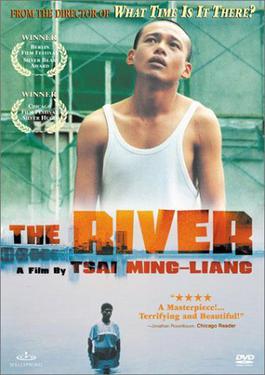
The River is a 1997 Taiwanese film directed by Tsai Ming-liang and starring Lee Kang-sheng, Miao Tien, and Lu Yi-ching. The plot centers on a family who has to deal with the son's neck pain. In 2003, a critic called it Tsai's "bleakest film."
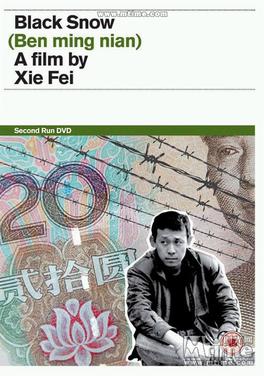
Black Snow is a 1990 Chinese drama film directed by Xie Fei. It was written and adapted from a novel by Liu Heng. It was entered into the 40th Berlin International Film Festival, where it won the Silver Bear for an outstanding single achievement. Although the English film title follows the original name of the novel, the Chinese film title 本命年 běnmìngnián means the year when someone is aged 12, 24, 36, and so on when the Twelve Terrestrial Branches come round again.
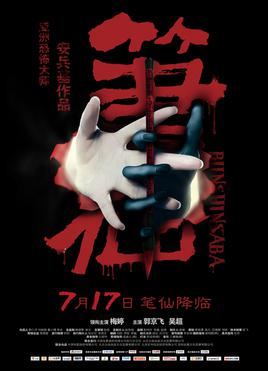
Bunshinsaba is a 2012 Chinese horror film directed by Ahn Byeong-ki." The film has the same title as Ahn Byeong-ki 2004 film Bunshinsaba, but contains an unrelated plot. The film is set in Beijing, where Xiao Ai has her horror novel rejected by her patient publisher and finds out that her ex-husband, Qi Kun, has been released from prison and is looking for her as well as her asthmatic son Xiao Xin. Xiao Ai and Xiao Xin are offered an old house by her doctor where unexplainable events begin to happen.

Love Will Tear Us Apart is a 2013 Chinese film directed by Li Weiran and starring Feng Shaofeng and Ni Ni.

Wuershan (乌尔善) is a Chinese film director who was born in Hohhot, Inner Mongolia on June 10, 1972. He is of Mongol ethnicity.

Journey to the Shore is a 2015 Japanese romantic drama film directed by Kiyoshi Kurosawa, starring Tadanobu Asano and Eri Fukatsu. It is adapted from Kazumi Yumoto's novel Kishibe no Tabi. It screened in the Un Certain Regard section at the 2015 Cannes Film Festival, where Kurosawa won the prize for Best Director. It was released in Japan on 1 October 2015.

The Monkey King 3 is a 2018 Chinese fantasy film based on the classic novel Journey to the West by Wu Cheng'en. The film is the third installment of the Monkey King franchise, after The Monkey King (2014) and The Monkey King 2 (2016). Directed and produced by Cheang Pou-soi, the film stars Aaron Kwok, Feng Shaofeng, Xiao Shenyang, Him Law and Zhao Liying. The film was released on February 16, 2018, the first day of the Chinese New Year holiday period. It received mixed reviews from critics.
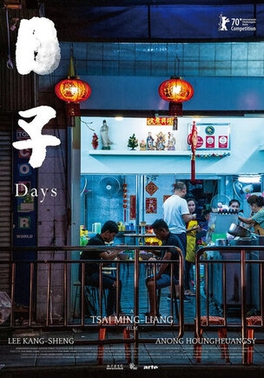
Days is a 2020 Taiwanese slow cinema drama film directed by Tsai Ming-liang. It was selected to compete for the Golden Bear in the main competition section at the 70th Berlin International Film Festival. It won the jury Teddy Award at the 70th Berlinale.

The Eight Hundred is a 2020 Chinese historical war drama film directed by and co-written by Guan Hu, and starring Huang Zhizhong, Oho Ou, Jiang Wu, Zhang Yi, Wang Qianyuan, Du Chun, Vision Wei, Li Chen, Yu Haoming, Tang Yixin, and Zheng Kai. The film is based on real life events: the defense of Sihang Warehouse in 1937 Shanghai by Chinese NRA troops during the Battle of Shanghai and the Second Sino-Japanese War.
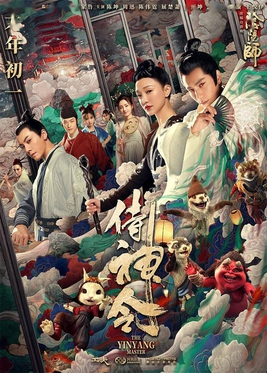
The Yinyang Master is a 2021 Chinese fantasy film directed by Li Weiran and starring Chen Kun and Zhou Xun. It is adapted from the NetEase game Onmyōji. It was filmed in 2018, and was released in China on the first day of the Chinese New Year on 12 February 2021. Netflix, which has acquired the international streaming rights, released the film on March 19, 2021, as The Yin Yang Master.
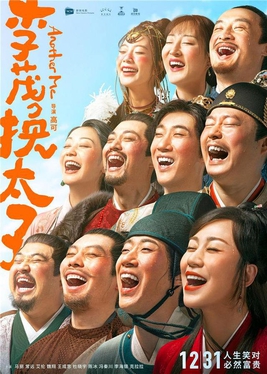
Another Me is a 2022 Chinese comedy film produced by New Classics Media. It was released on 1 January 2022 and stars Ma Li, Chang Yuan, Ai Lun, and Wei Xiang (魏翔).
Fly Me to Minami is a Japanese romantic drama movie released in 2016 directed by Lim Kah Wai, who is a Malaysian film director based in Osaka, Japan.
References
- ↑ "Derek Elley joins Film Business Asia". Film Business Asia. 5 May 2010. Retrieved 27 December 2014.
- ↑ "About". Sino-Cinema 《神州电影》. Retrieved 11 April 2020.
- ↑ Elley, Derek (4 December 2013). The Epic Film: Myth and History. Routledge. ISBN 978-1-317-92888-1.
- ↑ Chang, Kai-man (2008). Disrupting Boundaries of Desire: Gender, Sexuality, and Globalization in Tsai Ming-liang's Cinema of the Oppressed. ProQuest. p. 277. ISBN 978-1-109-00347-5.
- ↑ "Reviews". Sino-Cinema《神州电影》. Retrieved 11 April 2020.